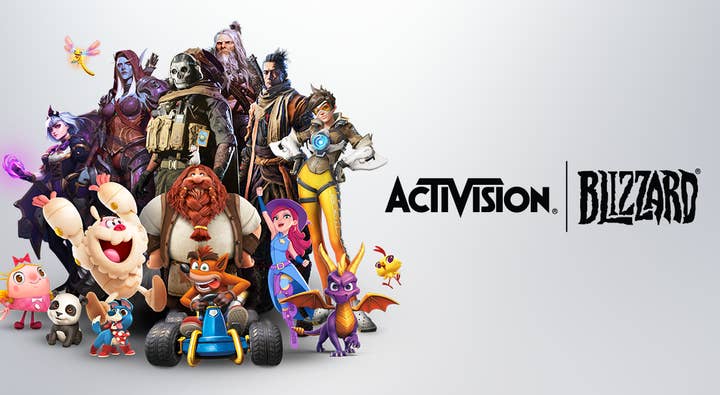Could the UK regulator end Microsoft’s acquisition of Activision Blizzard? | Opinion
The Competition and Markets Authority can be hard to predict
The UK’s Competition and Markets Authority is the wildcard in Microsoft’s bid to acquire Activision Blizzard.
Whereas you can make educated guesses on what the US and EU regulators might do, the CMA has made some big and surprising decisions since the UK exited the European Union.
This is because the group now has more powers to look at a broader range of mergers and acquisitions, which would have previously only been seen by the European Commission. As a result, the CMA blocked three deals from taking place over the last year, the highest it’s ever prohibited. This included Facebook/Meta’s acquisition of Giphy. The CMA also blocked the high-profile merger of Sainsbury’s and Asda in 2019, which shows it’s unafraid to get in the way of some of the biggest deals.

When it comes to the digital economy, the CMA has been paying close attention to the increasing dominance of players such as Google, Meta and Amazon, and has talked extensively at the importance of competition and innovation in the digital world.
In other words, Microsoft is right to be anxious over what the CMA might do in terms of its proposed acquisition of Activision Blizzard. And it’s why both Microsoft, and its chief competitor Sony, have devoted so much time and energy into reacting and counter-reacting to what’s going on in the UK.
So much of the focus around the Activision Blizzard acquisition has been on Call of Duty, and whether it might become exclusive to Xbox consoles. Microsoft insists it won’t do that, and that even if it did, it wouldn’t suddenly make them a dominant player in the market. In fact, according to its calculations, Sony would still operate the world’s most popular games console even without Call of Duty.
Sony disagrees. But regardless of which side of the debate you fall on, the CMA’s concerns go deeper than just whether one console is likely to defeat the other. Because the regulator also talks about the potential harm that might happen should Call of Duty be exclusive to Microsoft’s subscription service (Game Pass) and streaming service (Xbox Cloud Gaming).
"If the industry pivots towards streaming and subscriptions, it’s not hard to imagine Microsoft being a clear leader"
This is likely to alarm Microsoft, because although it may intend to release Call of Duty on PlayStation consoles going forward, it almost certainly has no intention of putting the game into Sony’s PS Plus service, or to allow the game to be streamed via a competitor.
Xbox leader Phil Spencer has frequently talked up Microsoft’s potential in game streaming by citing ‘Content, Cloud and Community’, which he says are the three things you need to launch a successful streaming service.
Community refers to large groups of engaged players, which Microsoft has through Xbox, PC and – potentially – Call of Duty. Cloud is about the technology needed to deliver such an experience, and Microsoft is one of the biggest providers of cloud services in the world (namely through Azure). And finally, and most importantly, it’s about ‘Content’, which are the games that will drive players to the service. Microsoft has a strong line-up of games already, and with Activision Blizzard, would add some of the biggest titles in the world to that roster.
Microsoft is really the only company that tickets all three of those ‘Cloud, Community and Content’ boxes. Google and Amazon also operate big cloud services, and they have access to large gaming communities via the likes of YouTube and Twitch, but they are lacking in content. PlayStation and Nintendo have some big games, but are having to use other cloud partners for its technology (including Microsoft’s Azure). Whereas Valve has a significant audience, plus a plethora of developer partners, but it’s lacking when it comes to regular first-party content.
There are other potential players in this space, including publishers and investors such as Embracer and Tencent. But ultimately, if the industry does pivot towards streaming and subscriptions (as it has in movies and music), it’s not hard to imagine that Microsoft might emerge as a clear leader in this space.
But could it dominate at the expense of strong competition? It’s certainly a formidable offering.
But you can also argue that although Microsoft has a big gamer community, it’s not (currently) on the same scale as Valve or PlayStation. Yes, Microsoft operates its own big cloud service and that will provide some advantages, but it isn’t essential. After all, Netflix and Disney Plus – two of the biggest TV streaming services – don’t operate their own cloud system (they use Amazon’s service).
"The future of games is hard to predict even for us who live it, let alone for someone like the CMA"
And as for games, although you don’t get much bigger than Call of Duty or World of Warcraft, there are other massive brands out there. Granted, most of them are third-party and are therefore non-exclusive, but Sony is investing heavily in its franchises and new IP (including more than ten live service titles). Meanwhile, Nintendo has some pretty massive game IPs, should it decide to go down such a route.
Yet before all of that, there’s no guarantee that subscriptions and streaming are the future of games. Streaming games is far more complicated and intensive than a CD or movie, and the experience isn’t currently good enough. And how successful can subscriptions become when so many of the big games are either free-to-play or unavailable – most major AAA publishers have confined their activity to just putting older games into these services.
It’s tempting to compare what’s going on in games to music and TV, but the size of games, the time people spend on them, their interactivity and even the current market dynamics are wildly different. The idea that people will access and pay for Call of Duty in the same way they access and pay for Stranger Things is by no means a given.
The future of the games industry is hard to predict even for us who live and breathe it, let alone for someone like the CMA. Yet the organisation will be trying to look at where the industry is heading, and ultimately whether Microsoft’s buy-out of Activision Blizzard has the potential to limit competition and innovation in the future.
In Microsoft’s response to all that, it described the concerns as ‘novel and without precedent’. Which are four words that can somewhat sum up the CMA itself.









